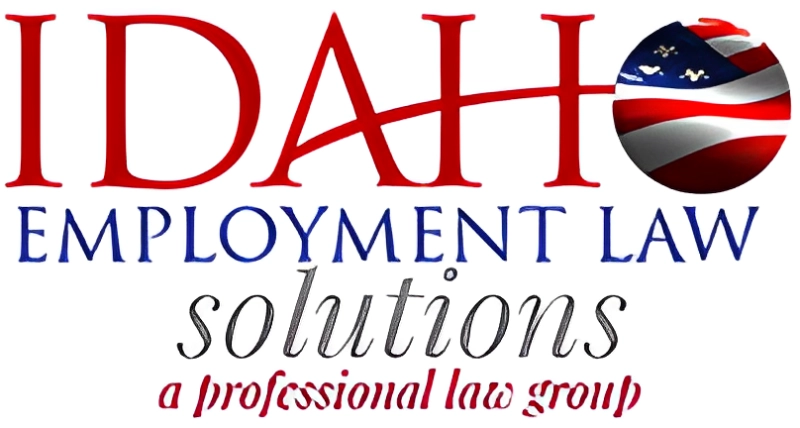Harassment
IDAHO WORKPLACE HARASSMENT LAWYER
30+ Years Experience
Honest & Transparent
Integrity Above All

Imagine the following scenario
Employers are responsible for creating and maintaining a workplace environment that fosters rather than inhibits productive behaviors. One of the most volatile workplace environments is one plagued by harassment. Women, people of color, gay and lesbian or nonbinary people, and national or religious minorities are most susceptible to harassment in the workplace. Workplace harassment can originate with a single individual or manager or result from the accumulation of behaviors either not controlled by management or even encouraged.
Toxic workplace cultures can be illegal under Title VII of the Civil Rights Act of 1964.
WHAT IS WORKPLACE HARASSMENT?
Title VII of the Civil Rights Act of 1964 and other federal regulations, including the Age Discrimination in Employment Act of 1967 and the Americans with Disabilities Act of 1990, applies to employers with fifteen or more employees. Together these federal statutes prohibit harassment as unwelcome verbal or physical behavior based on race, color, religion, sex (including pregnancy), gender/gender identity, nationality, age (40 or older), physical or mental disability, or genetic information.
Employees suffer from harassment when forced to endure offensive conduct as a prerequisite to continued employment, especially when imposed by a supervisor, or when the behavior is so severe and pervasive that a reasonable person would consider the workplace intimidating, hostile, or abusive. Lastly, if a supervisor’s harassment results in a change in an employee’s salary or status, this conduct might also be unlawful.
TYPES OF WORKPLACE HARASSMENT
Workplace harassment can take many forms. Harassment is usually evidenced by offensive jokes, slurs, name-calling, physical assaults or threats, intimidation, ridicule, insults, and offensive pictures.
Workplace harassment also encompasses sexual harassment, which can be heterosexual or same-sex.
Workplace harassment can result when other employees who aren’t necessarily the targets witness the offensive activity. Seeing such behaviors can have an intimidating impact on everyone. However, isolated annoyances are not unlawful. Federal statutes do not guarantee comfort in the workplace, and only that work environments be free from intimidation, hostility, and abuse.
Ronaldo (Ron) A. Coulter will advise you as to the strengths and weaknesses of your claim. If he determines that you have a claim, he and his firm are there to work tirelessly on your behalf and guide you through a complex, multi-step legal process. You could ask for no better advocate to protect your legal rights.”
WHAT SHOULD I DO IF I AM A VICTIM OF WORKPLACE HARASSMENT?
In preparation for your initial consultation with a workplace harassment lawyer:
Acknowledge that you are experiencing workplace harassment
Review your employee handbook
Keep notes with dates, times, and witnesses
Stay at work and do your best
WHAT LAWS PROTECT YOU FROM WORKPLACE HARASSMENT?
On June 15, 2020, the Supreme Court of the United States issued its landmark decision in the case Bostock v. Clayton County, which held that the prohibition against sex discrimination in Title VII includes employment discrimination against an individual on the basis of sexual orientation or transgender status.
However, to date, the Idaho Human Rights Act or other legislation has not extended the protections of this state law on the basis of sexual orientation or transgender status. Individual cities have passed protections, although there is nothing yet statewide.
WORKPLACE HARASSMENT FAQS
CONTACT AN IDAHO WORKPLACE HARASSMENT LAWYER
Idaho Employment Law Solutions is an African-American and Veteran-owned law firm providing quality and efficient legal counsel to businesses, organizations, employers/ employees, and individual multi-cultural clients located throughout Idaho.
Idaho Employment Law Solutions is skilled in handling charges of discrimination based on gender, sexual orientation, disability, religion, race, national origin and pregnancy submitted to the Equal Employment Opportunity Commission (EEOC), the Idaho Human Rights Commission, the U.S. Department of Health and Human Services and the U.S. Department of Labor. Idaho Employment Law Solutions has extensive experience in handling employee complaints about discrimination or harassment before those complaints become official charges of discrimination. Idaho Employment Law Solutions is experienced in guiding its business clients through sexual harassment investigations and provides advice on a case-by-case basis about the most effective way for the employer and employee to address claims of discrimination.
Contact Idaho Employment Law Solutions by phone at (208) 401-9343. to make an appointment. Legal advice will not be provided over the telephone. There will be a small fee charged for initial consultations.
